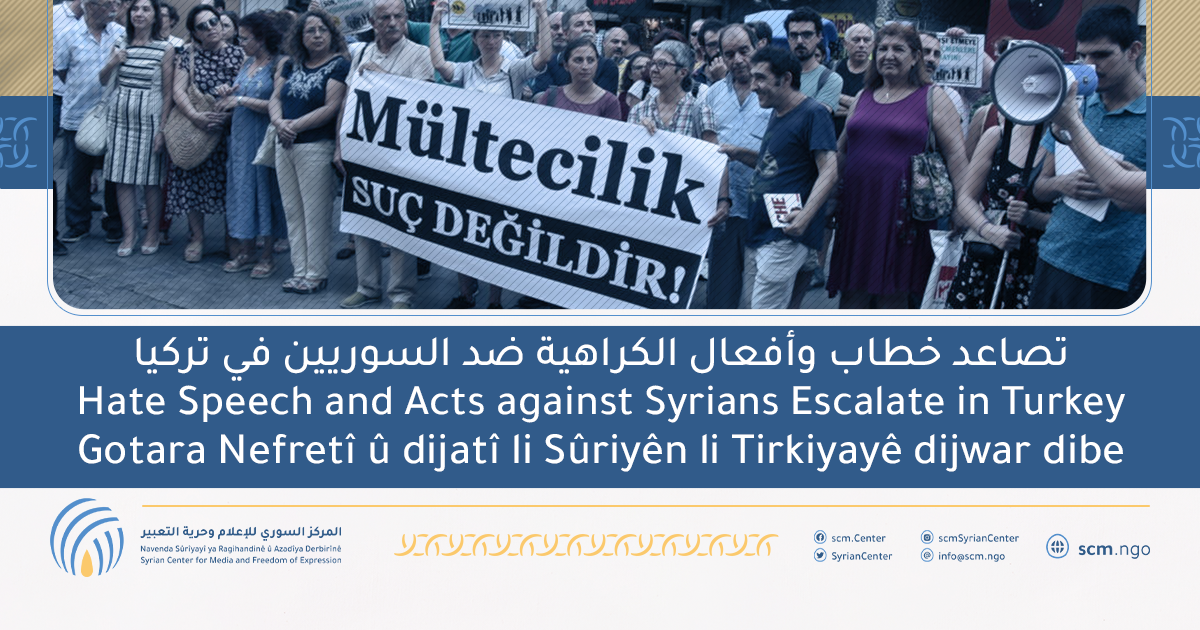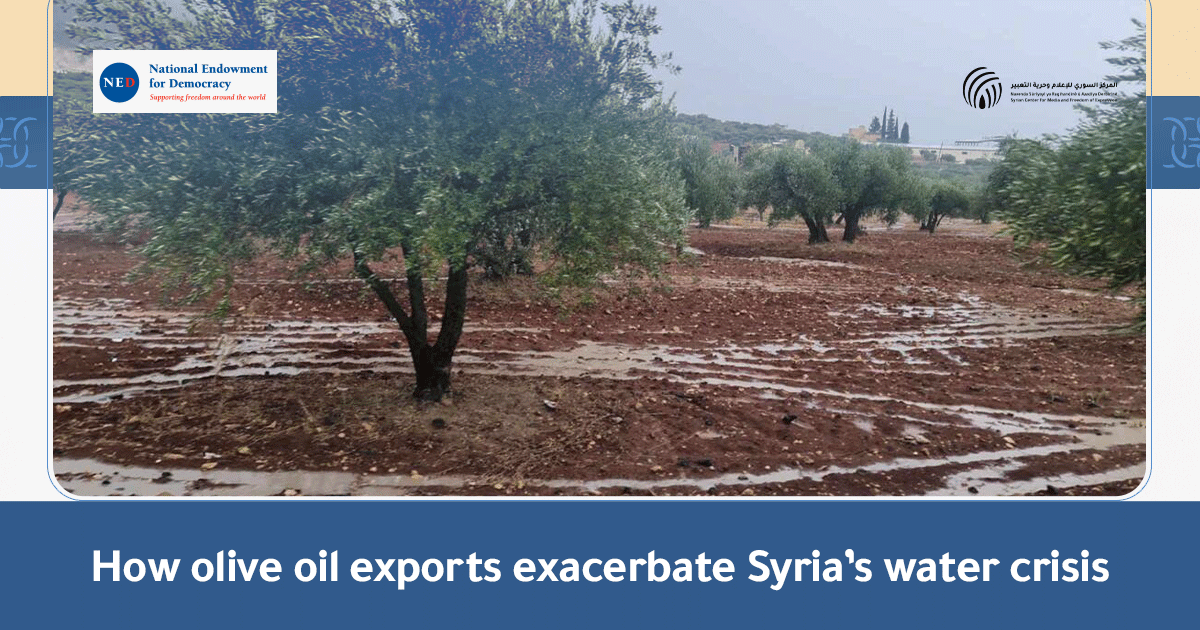According to figures of the ” Turkish General Department of Immigration,” there are 3,701,584 Syrians registered under “temporary protection” status in Turkey, which differs in its geographic, demographic size and economic power compared to Syria’s other neighboring countries, and thus in its ability to accommodate the refugees. In the past years, the Turkish government has adopted legal legislations that regulated some aspects of refugees’ lives, addressed their education and strived to improve their social conditions and even their psychological conditions. However, all these policies have not been sufficient for the integration of Syrians, who have been waiting since 2015 for the implementation of UN Security Council Resolution 2254, which emphasizes a political transition in Syria and the creation of suitable conditions for the safe and voluntary return of refugees to their country and the reconstruction of affected areas in line with international law.
During the years of the Syrian conflict and the refugees’ stay in Turkey, economic stagnation, high inflation rates and high unemployment rates have fueled anger towards Syrians, many of whom Turks perceive as cheap labor who seize jobs and take advantage from public services. Hate speech and discrimination against refugees have also recently escalated and intensified, through a series of media statements and campaigns on social media that portray their presence in Turkey as a cause of economic decline, high unemployment rates and amplify their impact on the Turkish social fabric, which leads to the belief that there are “organized campaigns” aim at inciting hatred against refugees and contributing to transform hatred into actions and mass attacks against them or threatening with it, as happened on August 13 at a soccer match for one of the popular clubs, where its fans in the stadium chanted the slogan “We do not want Syrian refugees in our country” in addition to Turkish nationalist slogans with waves of whistling and united applause; just two days after the attacks on Syrians in the capital, Ankara, on August 11, 2021, in reaction to the stabbing of two Turks by a Syrian refugee in a quarrel that ended with the death of one of them. This infuriated Turkish citizens in “Altındağ” area, who formed groups to attack and break Syrians’ shops, burn their goods and throw stones at their homes in the area, one child was injured and significant material losses were recorded. Indicating a new level of resentment towards Syrian refugees, this feeling of resentment is likely to intensify with the recent influx of Afghan refugees across the eastern border to Turkey, which has been a key factor in bringing the refugee issue back to the spotlight.
In August, the Syrian Center for Media and Freedom of Expression’s Violations Documentation Project traced 20 cases of politician-led incitement against the Syrian presence in Turkey, including Bolu Mayor’s statement on August 3, 2021, proposing a 10-fold increase in the value of the water bill for foreigners within his municipality, which was later rescinded due to the difficulty of implementing it. The Attorney General launched an investigation against the Mayor for ” misconduct in office” and “hatred and discrimination”, following criminal complaints filed by Turkish civil and human rights organizations. Likewise, on August 10/2021, the Mayor of Sungurlu in the Turkish state of “Çorum” made racist statements against refugees, especially Syrians, stressing that no Syrian refugees will be allowed to live in the Sungurlu area, he also stated that “who has no country has no honor.”
The Turkish government’s silence towards the hostile statements and media incitement against Syrian refugees without any kind of intervention, while it controls most of the media in Turkey and exercises full control over social media under the Law on the Control of Social Media Platforms approved by the Turkish Parliament on July 29/2020. It entails a failure to fulfill its responsibility to protect civil peace from social tensions and escalation of violence and to provide equal legal protection without any discrimination to citizens and residents on Turkish territories, regardless of the nature and legality of their residence, and its responsibility to implement the Turkish Criminal Code no.5237 which sanctions hate crimes with imprisonment of one to three years in Article 122 and hate speech in Article 216, first paragraph, with the same sanction.
It is also a violation of its international obligations to respect and uphold the value of equality stipulated in Article 2 of the Universal Declaration of Human Rights, and a violation of its commitment to the International Covenant on Civil and Political Rights, Article 20, which prohibits any propaganda of war or incitement to hatred, and to its commitment to the International Convention on the Elimination of All Forms of Racial Discrimination. And to the requirements of “temporary protection” regulating the presence of Syrians in its territory, which includes opening borders, prohibiting forced return and providing for basic and emergency needs, foremost among which is security. The optional geographical limitation that Turkey included in the provisions of the 1951 International Refugee Convention does not exempt it from its obligation as a state party to the Convention to protect refugees and the protection of their fundamental rights, and from its obligation to international protection as a humanitarian responsibility to ensure their personal safety and security and to compensate them for the protection they lost in their countries.
In light of the information above, the Syrian Center for Media and Freedom of Expression calls on the Turkish government to:
- The immediate suspension of forced deportations of refugees to northern Syria and work to regulate the legal status of refugees, regardless of their breaches of the regulations of residence or temporary protection in Turkey. Deportation to any area in Syria is a grave violation of the peremptory rules of international law and a flagrant violation of the rights of refugees to security and protection.
- Take prompt and effective legislative measures to address the escalation of hate speech and acts against refugees and adopt the “Rabat Plan of Action” on the prohibition of hate speech when implementing or revising its domestic legal framework or issuing relevant administrative decisions, and work to ensure that refugees have access to justice on its territories and to provide means for effective and prompt reporting of acts of hate and racism to which they may be exposed.
- Withdraw the reservation on the “geographical restrictions” provision of the 1951 UN Refugee Convention and end the temporary protection status that regulates the presence of Syrians in Turkey and transfer it to international protection (asylum) that guarantees the safety, security and legal status of the refugee in line with international standards.
- Separate the refugee issue from the local political strife and address attempts at electoral exploitation, and decisively enforce the provisions of Turkish law regarding the circulation of racist opinions, lies, and misinformation by the media and social networking sites, and adhering to the provisions of the law without violating the right to freedom of expression for all.
It also calls on Turkish media institutions and bodies to adhere to ethical standards of journalism, to avoid stereotyping individuals and groups, to present reports and figures factually and neutrally, and to adopt codes of ethics and conduct, in order to practice and promote standards that can change public perceptions and clarify the reality of refugees, their rights and their contribution to Turkish society.
The Center also calls on the United Nations, the European Union, and donors to seek economic development policies and projects in Turkey that help the host community bear the burden of asylum, and enable Syrians to contribute to the economy by creating job opportunities for locals, expanding the government’s revenue base, reducing unemployment rates and the Turkish population’s rejection of refugees, supporting social cohesion and peace and to cooperate with international and national NGOs to prepare more effective integration plans and effective solutions to overcome the obstacles that hinder the integration of Syrians into Turkish society, the most important of which is the “Turkish language proficiency factor”, by providing incentives and support programs for learning the Turkish language and allowing universities, private schools, and civil institutions to contribute.
Signatory organizations:
The Syria Campaign
Jana Watan
Cairo Institute for Human Rights Studies
Human Rights Organization in Syria- Maf
HuMENA for Human Rights and Civic Engagement
Syrians for Truth and Justice – STJ
The Syrian Centre for Legal Studies and research
the Syrian center for media and freedom of expression





